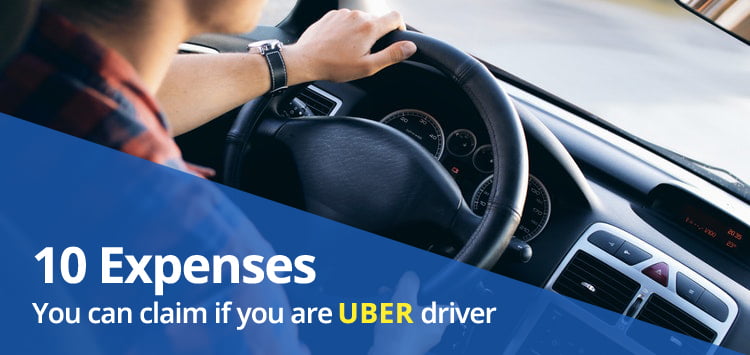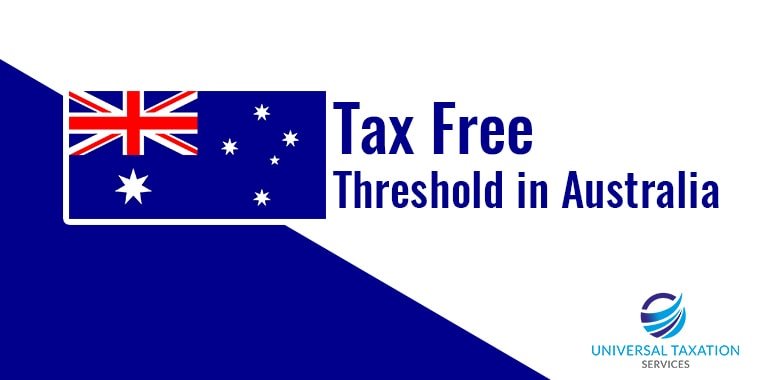
Universal Taxation: #1 Tax Consultant in Perth
May 29, 2017
Tax Deductions You Can Claim for Using Your Car for Work
August 30, 2017Editor’s Note: This blog post has been updated on Jan. 3, 2019.
As an Uber driver, tax filings are a complex issue to deal with at the end of the year. As a rideshare driver, Uber drivers are taxed under the purview of the independent contractor. They are required to fill the 1099 form from contractors but filing taxes could be full of hassles.
There are several tax deductions that every Uber driver is qualified for. They can claim deductions based on business-related expenses and use of mileage rates. One can use mileage deduction when doing taxes or even opt to itemize expenses including fuel, insurance, maintenance, and the like, but one cannot qualify for both.
One just has to worry about mileage accumulated when conducting business when opting for mileage deductions, which is 57.5 cents/mile for miles driven during business. If you opt for the latter approach, the following is a list of expenses used for claiming tax deductions
Uber Tax and GST — The Basics:
When you drive for Uber, you become a contractor and not an employee of the company.
All tax affairs need to be managed correctly on an individual basis or at least with the help of a tax agent.
The tax implications as prescribed by the ATO are as follows:
1. All money earned through Uber driving counts as income, the ad needs to be declared in annual tax returns.
2. Even if Uber drivers earn less than 75,000 GST income threshold, registering for GST is a must.
Do Uber drivers pay GST?
From August 2015, the ATO has stipulated that all Uber drivers need to register for GST, ensuring that drivers submit the GST within the Uber fares to the ATO. The GST component is added to the tax to be paid on behalf of your income.
Uber is challenging this GST rule in the court but for now, all Uber drivers need to abide by the rule:
All Uber drivers are required to register for GST then lodge quarterly BAS statement to pay GST on their income. If you don’t do this, you’re bound to get in trouble with the ATO. Uber cannot help out drivers from these personal ATO troubles since they are unlike State Transport fines that can be covered sometimes by the company occasionally.
List of Expenses for Claiming Tax Deductions:
1. Uber Fee:
Uber fees are pretty much straightforward especially with respect to parking fees when on a business ride. One can also include garage fees and meter fees under this criteria.
2. Uber Supply:
You can deduct things you buy for the rideshare business even if they are not vehicle-related, but related to business purposes, including drinks/ snacks for “passengers.” Some other things that are “necessary and ordinary” can be counted under this header.
3. Fuel Expenses:
You can deduct fuel expenses with the help of receipts, especially if one is audited by the IRS. You can use tax deduction on fuel costs as long as it is part of the Uber business. All route expenses when meeting with potential Uber drivers for signing up can be deducted under fuel costs as well.
4. Registration & Insurance:
Keep the registration and insurance receipts along with bank records related to servicing, repairs, tires, and even maintenance costs. They can be claimed.
5. Repair & Maintenance:
One can deduct some maintenance and repair costs as part of a business matter but not entirely as it can be used for personal purposes too. You can deduct costs related to the tires, oil changes, replacement of brake pads, and anything related to car maintenance that is crucial for rideshare business.
6. Mobile & Internet Expenses:
The cost of smartphones for Uber rides is tax deductible along with phone payments for the time one used it for business use. As rideshare drivers, smartphones are used for business purposes, and hence some cell phone bills can be claimed. You also need to attach expenses related to the internet charges since the route affirmation and ride costs are calculated automatically when connected to the web.
7. Protective Items:
Any hi-visibility clothing or sunglasses that you wear during rides can be mentioned in protective safety gear for riders. Although you can only mention the percentage of use involved in these rides
8. Car Depreciation:
If you buy the car used for Uber, you can deduct the cost of your car over a 5 year period with the help of depreciation. The depreciation expenses can be spread throughout the 5 year period.
9. Car Hire Fees:
If you hire a car, you need to deduct the proportion of car lease payment especially when the car is being used for Uber.
10. Other Relevant Expenses:
One can mention relevant expenses as required based on car maintenance that can be used as a tax deduction for:
- Car Expenses
- Commissions and Uber licenses
- Toll costs on trips and between trips
- Bank fees involved in Uber-related bank account only
- Tax fee and Accountant fee
- Costs of becoming an Uber driver –Application fees, insurance fees, etc
Warning: Don’t hide Uber income.
Most people wonder if they can spend their extra income, and do not declare it while claiming tax returns.
As an Uber driver, your income is clear as daylight with all the records of the vehicle through the Uber app. The ATO can determine actual Uber income and check bank accounts anytime.
ATO can find Uber drivers who under-report their income. Those who try to avoid declaring income are then expected to shell out huge repayments in the form of fines, and charges on interest. The ATO does not take the underrepresentation of earnings lightly. It is essential to remain all dealings with the ATO with a proper record of Uber driving expenses and earnings.
To claim the aforementioned deductions, one can claim costs directly related to the vehicle only, and not anything else.
Calculate the kilometers of your journeys with a logbook with the appropriate bifurcation of work-related car use, to claim deductions on vehicle-related expenses systematically.
It is essential for Uber car drivers to be informed about the ever-changing tax issues that are relevant to their business. You can be an Uber driver as your side business but adhere to the business systems and rules in place.
Consult a tax agent on matters related to Uber tax advice so that you can file taxes aligned with proper and accurate procedures for next tax season.




